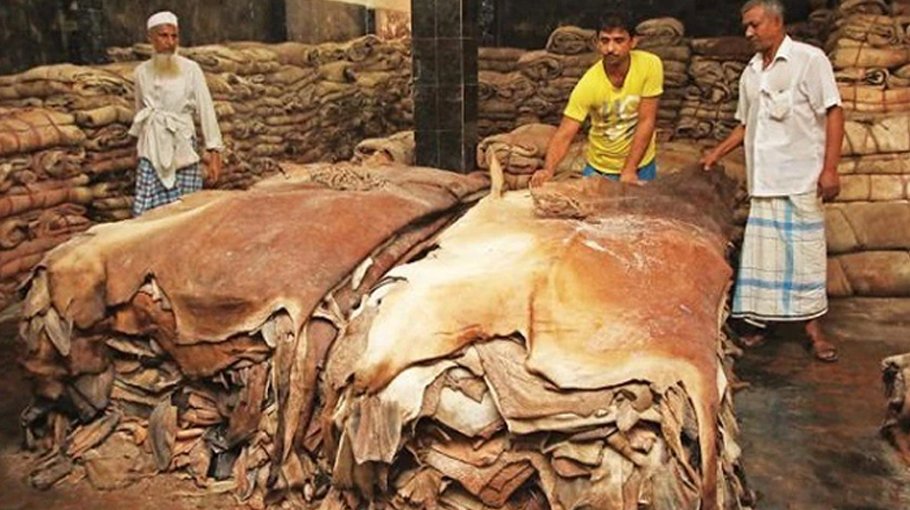‘Fixing of rawhide prices can promote industry’

Ensuring fixed prices for rawhide could draw increased attention from businesses in the sector.
At the same time, creating an environmentally sustainable industry would help the leather sector to secure a larger share of the global market.
Due to environmental threats, the country gradually lost the foreign market, and the income of this sector is also decreasing day by day. But it has the potential to be the second largest export earning sector of the country.
Despite the government setting a fixed price for rawhide each year, it is not being sold at the designated rate. This discrepancy has caused hardship for seasonal traders and the entire leather sector, due to the lack of stable pricing.
To address this issue, the government has implemented several measures to ensure leather is sold at the fixed price.
As part of the measures, the government will now provide free salt to various mosques, madrasas, Lillah Boarding Houses, and orphanages. This will enable these institutions to preserve the leather for a short period, allowing them to sell it later at better prices instead of offloading it at low rates out of fear of spoilage, according to industry ministry sources.
The Ministry of Industries believes that implementing this measure will reduce local leather waste and ensure fair pricing for leather. Recently, the seventh meeting of the task force, established to provide recommendations, and develop action plans for the leather industry’s growth was held at the Ministry of Industries.
Industries Minister Nurul Majid Mahmud Humayun said that both short-term and long-term measures have been taken for the overall development of the leather industry, marking the upcoming Eid. We need to enhance preservation facilities within the leather industry to prevent spoilage also.
The ministry has also decided to keep the Central Effluent Treatment Plant (CETP) operational within its capacity to reduce environmental pollution. In this case, rawhide entering the capital from out districts will not be allowed for a few days following the Eid day.
Meanwhile, the Bangladesh Tannery Association (BTA) has claimed that last year rawhide was sold in the country at the price set by the government. Tannery owners will buy leather at fixed prices this year as well.
BTA General Secretary Md. Shakawat Ullah told Bangladesh Post that this year they have a target to collect 1.10 crore skins during eid. As the commerce ministry is set to fix the raw hide price next week, they will take their decision later.
Past history of the sector shows that in the last twenty years, the price of all kinds of products has increased in the country, but the price of skin has decreased. During this time the price of leather goods increased more than 20 times. A piece of cow's skin was sold between Tk 3000 to Tk 6000 depending on the quality, but now its price is only Tk 600 to Tk 1200.
Secretary General of Bangladesh Meat Traders Association Rabiul Alam told Bangladesh Post, “Strict monitoring is required to get the mentioned price of the sacrificial skin. To address the chaos in the beef market, we must first ensure fair pricing for leather. The instability in leather prices directly affects beef prices.”



